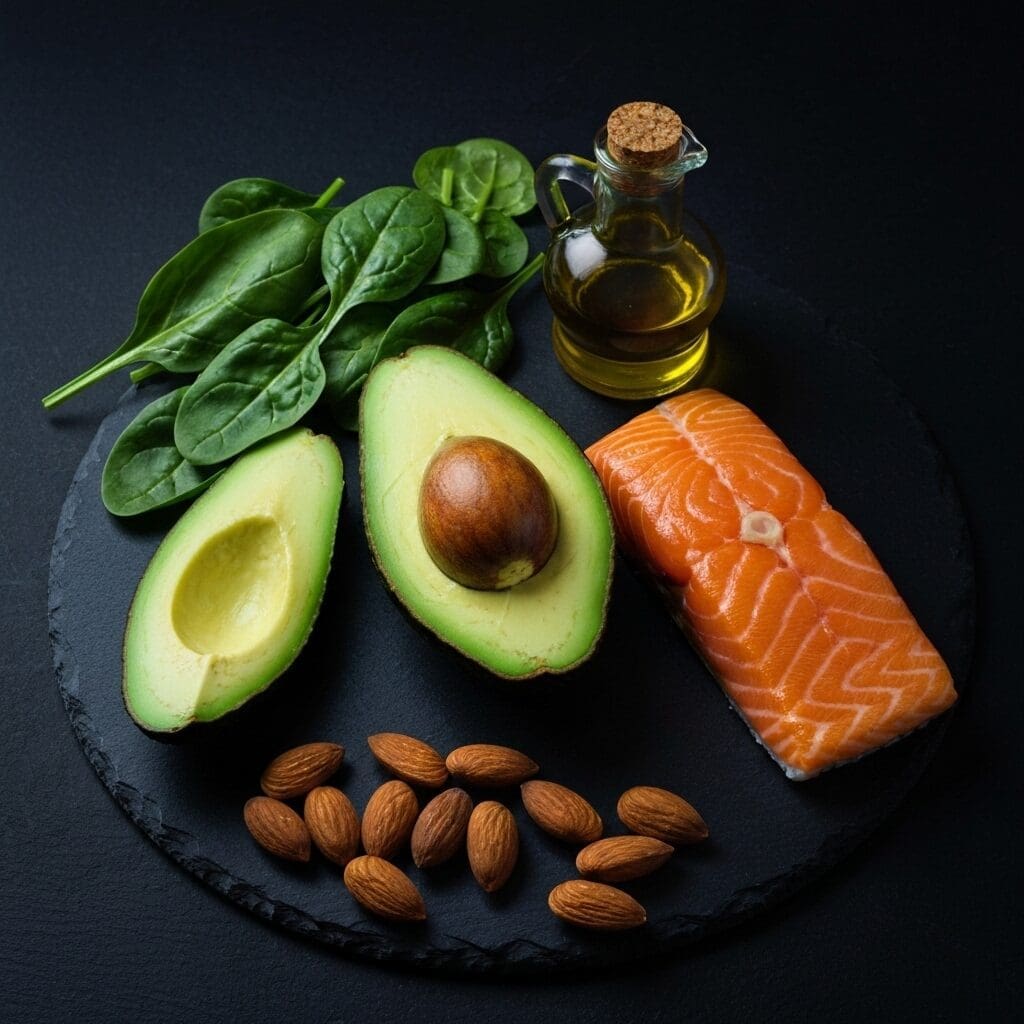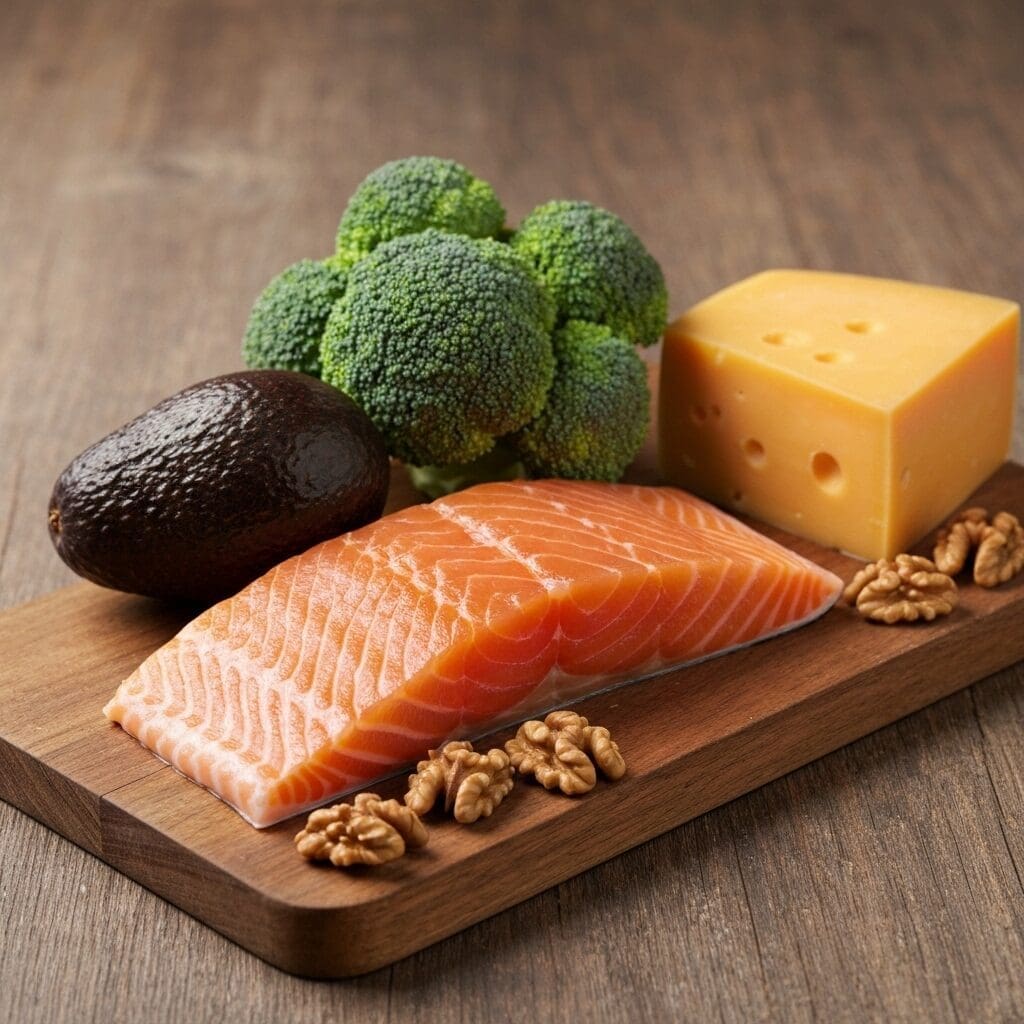A Beginner’s Guide to the Ketogenic Diet: Benefits, Foods, and Getting Started

The ketogenic diet, or ‘keto’ for short, has gained immense popularity as more than just a weight-loss trend; it’s a metabolic strategy with a wide range of health benefits. At its core, the keto diet is a very low-carbohydrate, high-fat eating plan that fundamentally changes the way your body uses energy.
By drastically reducing your carb intake and replacing it with fat, you push your body into a metabolic state called ketosis. In this state, your body becomes incredibly efficient at burning fat for fuel.
This guide is designed for beginners, providing a clear roadmap to understanding and implementing the ketogenic diet successfully.
What is Ketosis? The Science Behind Keto

Ketosis is the cornerstone of the ketogenic diet. Typically, your body relies on glucose (sugar) from carbohydrates for energy.
When you deprive it of carbs, it’s forced to find an alternative fuel source. Your liver begins to convert fat—from both your diet and your body stores—into energy molecules called ketones.
These ketones then fuel your brain, muscles, and other tissues. Achieving ketosis usually takes 2-7 days of eating fewer than 50 grams of carbs per day.
This metabolic shift from burning sugar to burning fat is what drives the diet’s most significant benefits.
Top Benefits of a Ketogenic Lifestyle

While weight loss is the most celebrated benefit, the advantages of keto extend much further. Firstly, the high-fat, moderate-protein meals are highly satiating, which naturally reduces appetite and calorie intake, leading to sustainable weight loss. Secondly, many people report a significant boost in mental clarity and focus, a cognitive benefit that can be enhanced through practices like mindfulness meditation to reduce stress. This is because ketones provide a more stable and efficient energy source for the brain than glucose. Thirdly, by eliminating sugar spikes and crashes, the diet leads to more stable and sustained energy levels throughout the day.
Additionally, research published in the European Journal of Clinical Nutrition has shown potential benefits for managing type 2 diabetes, improving heart health markers, and even supporting brain health.
What to Eat on a Keto Diet: Your Food List

Starting keto means focusing on whole, unprocessed foods. Your plate should be rich in healthy fats, have a moderate amount of protein, and very few carbohydrates.
Key foods include:
- Healthy Fats: Avocado and avocado oil, olive oil, coconut oil, butter, and MCT oil.
- Proteins: Fatty fish (salmon, mackerel), meat (beef, poultry), eggs, and shellfish.
- Low-Carb Vegetables: Leafy greens (spinach, kale), broccoli, cauliflower, zucchini, bell peppers, and asparagus.
- Nuts and Seeds: Almonds, walnuts, macadamia nuts, chia seeds, and flaxseeds in moderation.
- Dairy: Full-fat cheese, heavy cream, and butter.
Foods to strictly avoid include sugary foods, grains (wheat, corn, rice), fruit (except small portions of berries), and starchy vegetables like potatoes and yams.
How to Start Keto: A 4-Step Plan for Beginners

Embarking on your keto journey can be simple with a clear plan.
- Clean Out Your Pantry: Remove tempting high-carb foods like bread, pasta, rice, and sugary snacks.
- Stock Up on Keto Staples: Fill your fridge and pantry with the keto-friendly foods listed above.
- Plan Your First Week: Having a simple meal plan, full of easy-to-make dishes like some of these high-protein recipes, can prevent decision fatigue and help you stay on track.
- Manage Electrolytes: As your body adapts, it flushes out water and electrolytes. Be sure to get enough sodium, potassium, and magnesium to avoid the ‘keto flu’—symptoms like headaches and fatigue. Drink plenty of water and add a pinch of salt to your meals.
Conclusion
The ketogenic diet is a powerful tool for transforming your health, offering benefits that range from effective weight management to enhanced cognitive function and stable energy. While it requires an initial period of adjustment and careful planning, the long-term rewards can be profound.
Remember to listen to your body, focus on whole foods, and stay hydrated. For personalized advice, especially if you have underlying health conditions, consulting with a healthcare professional or a registered dietitian is always the best first step.
Welcome to the beginning of your ketogenic journey.
